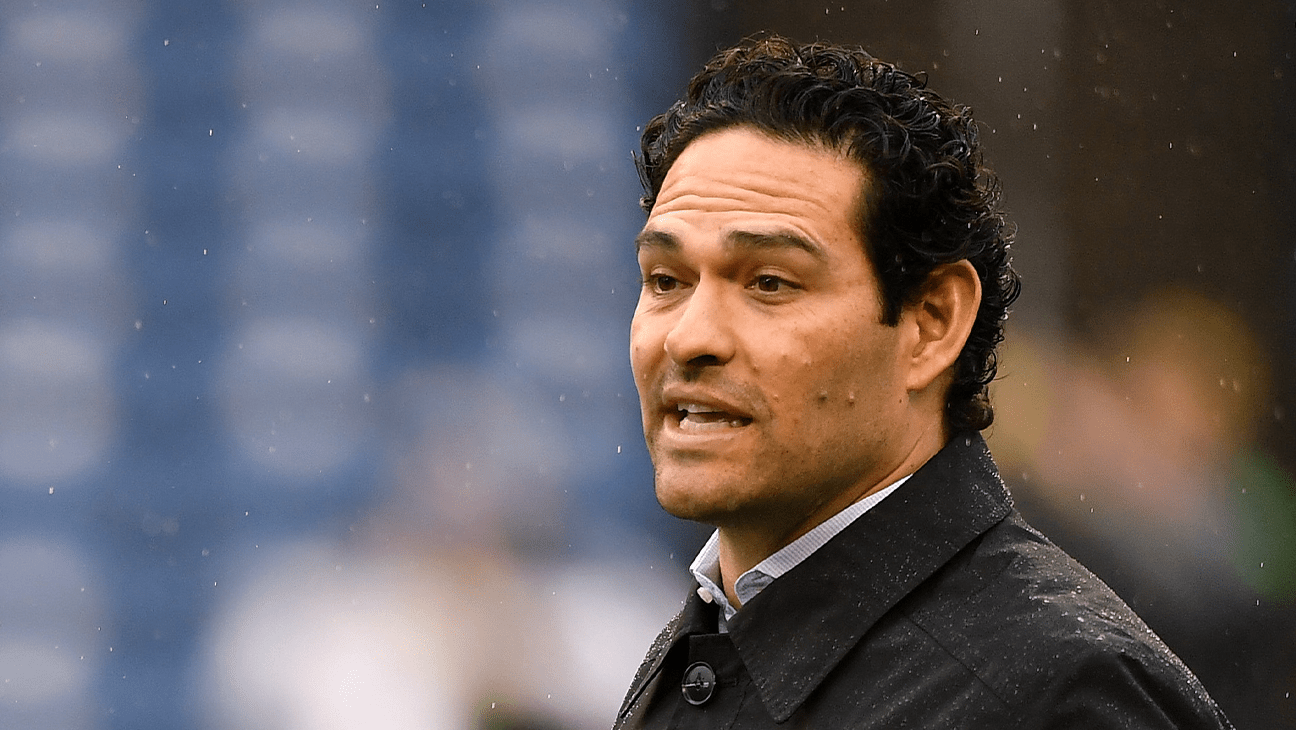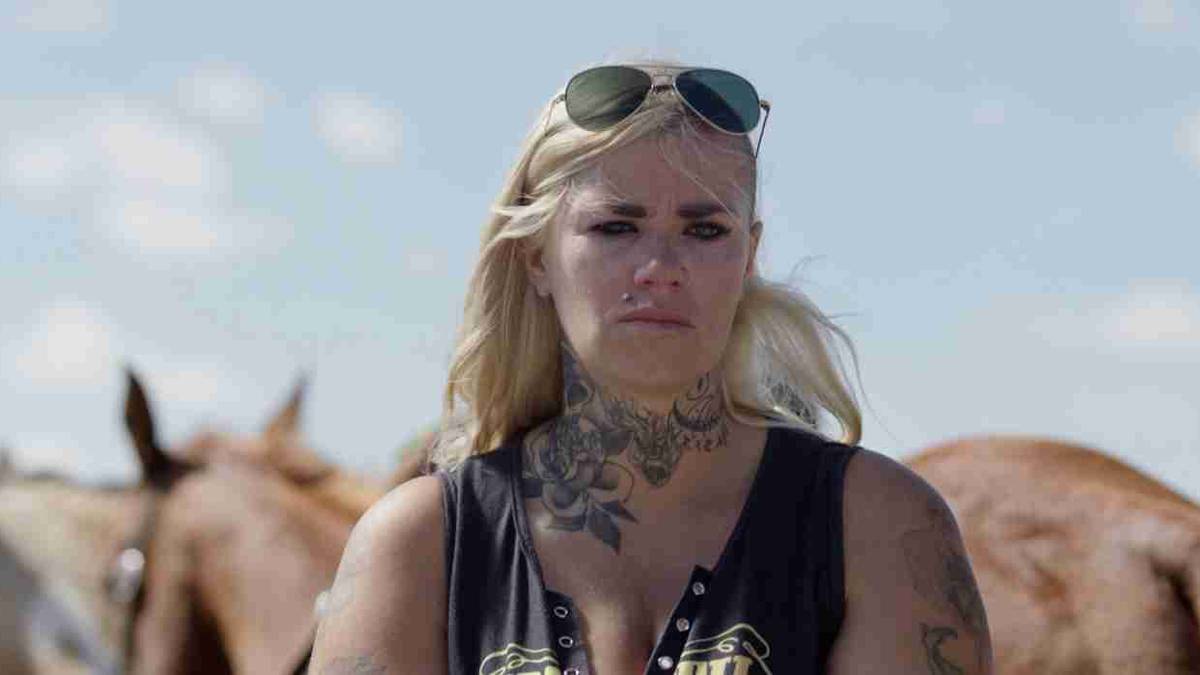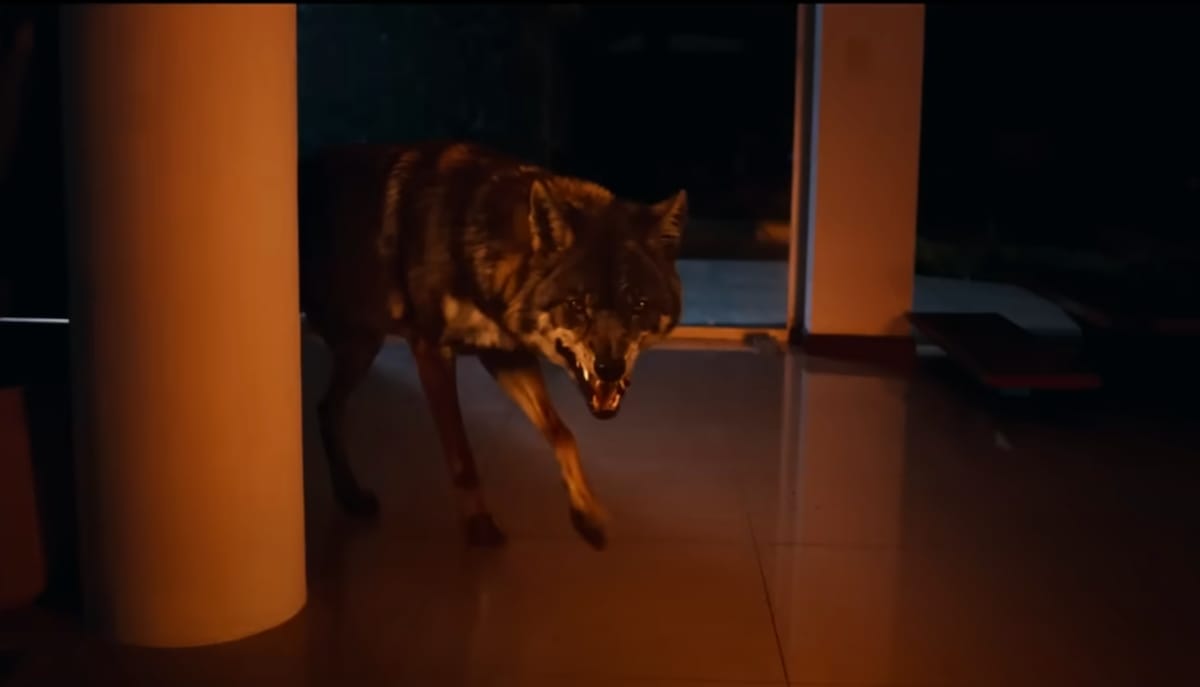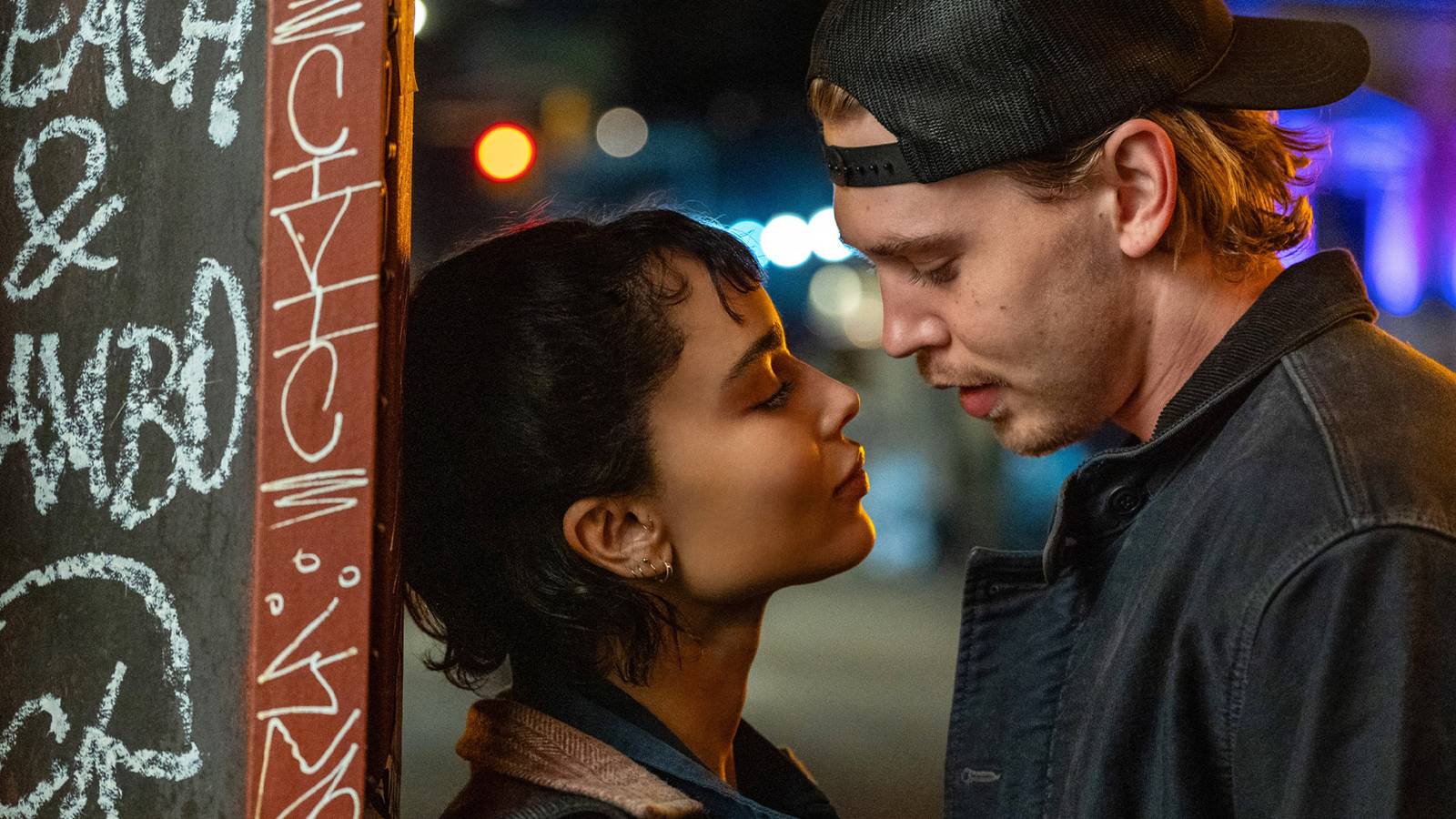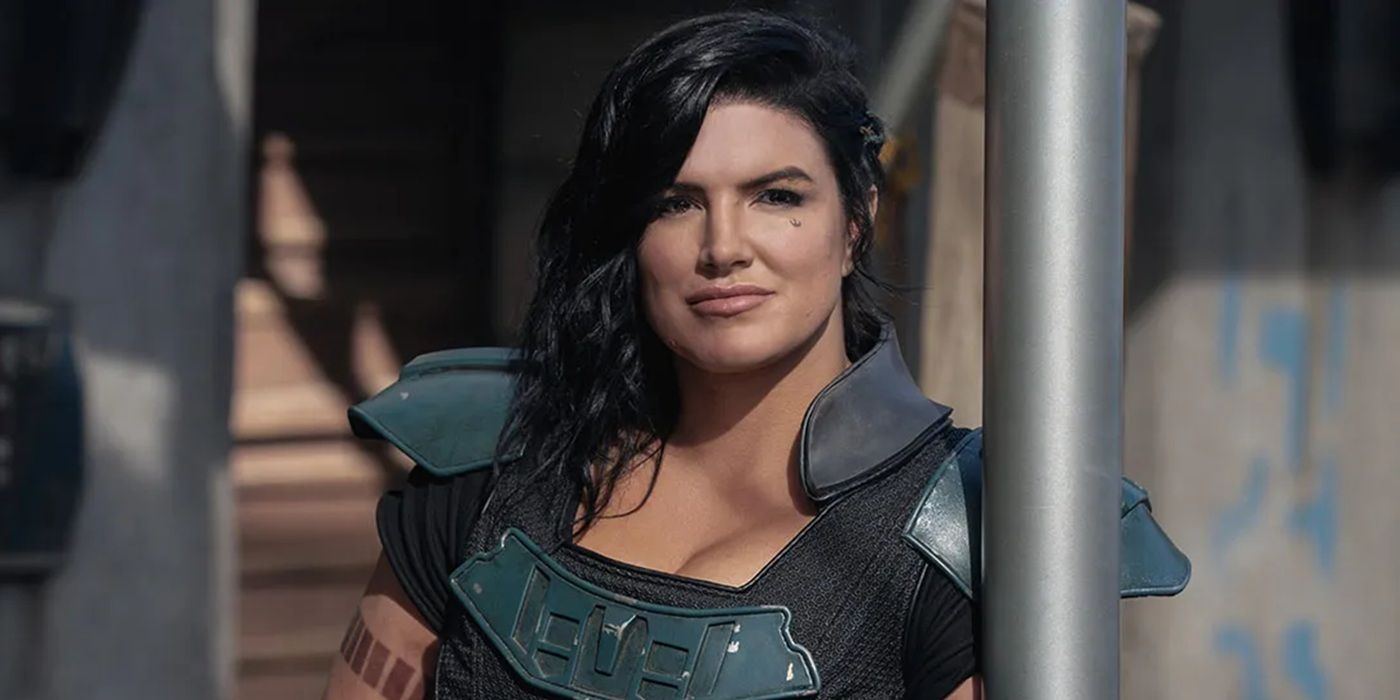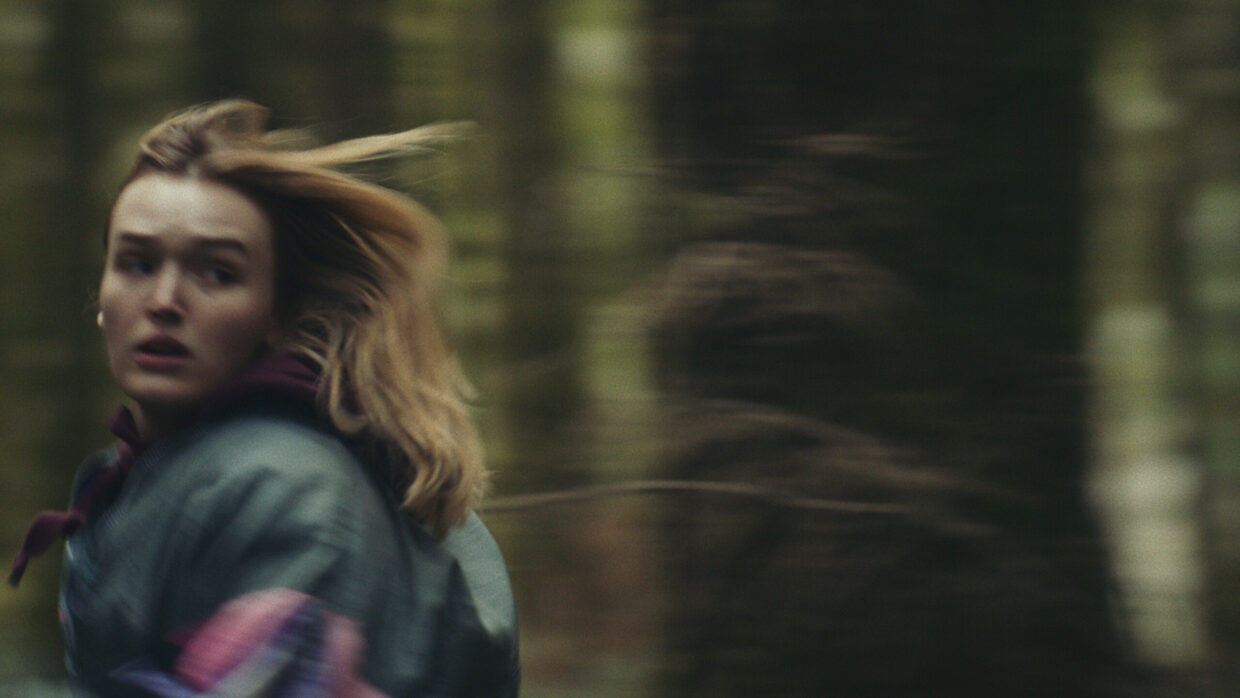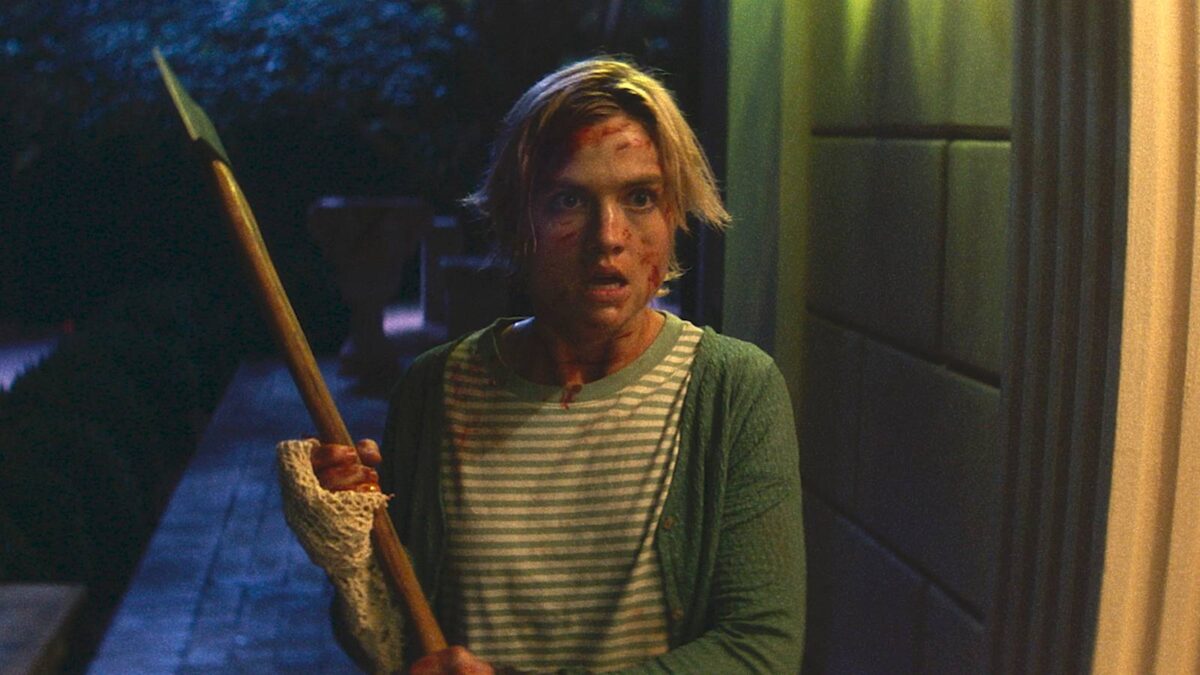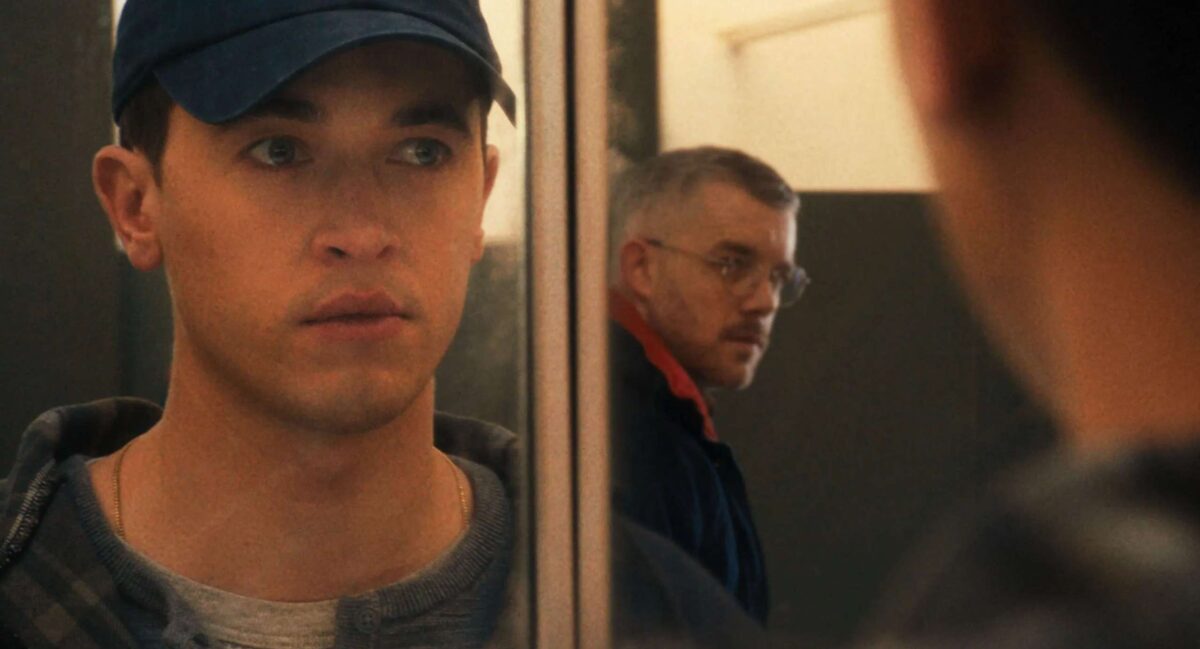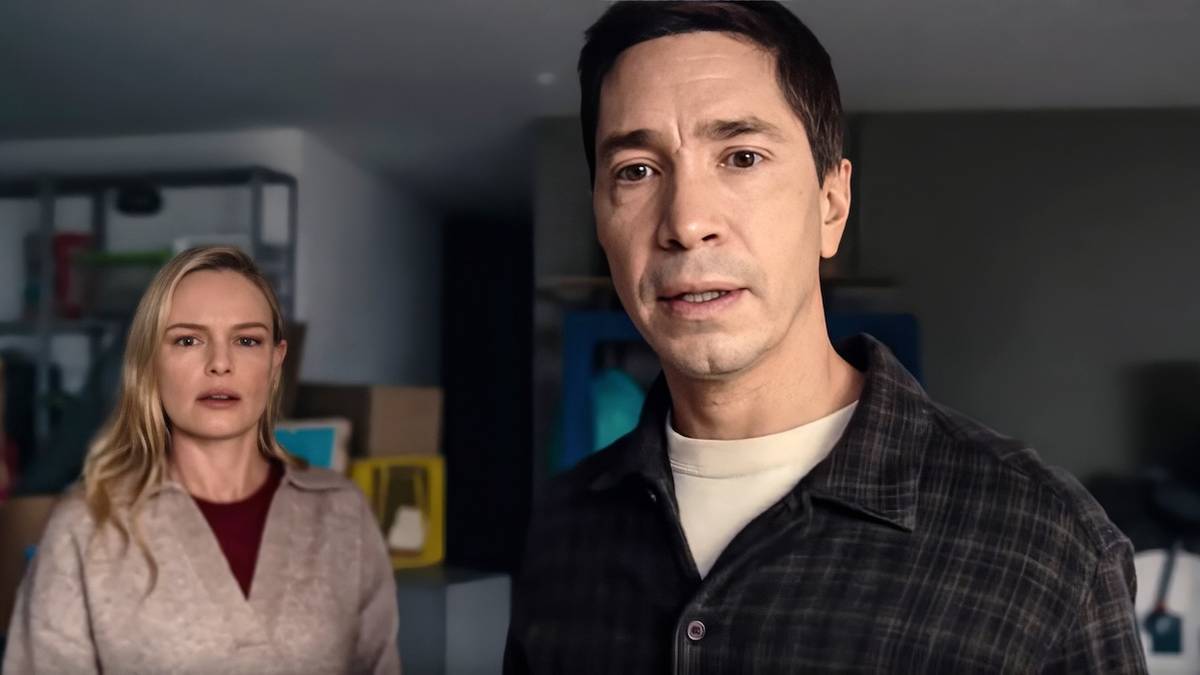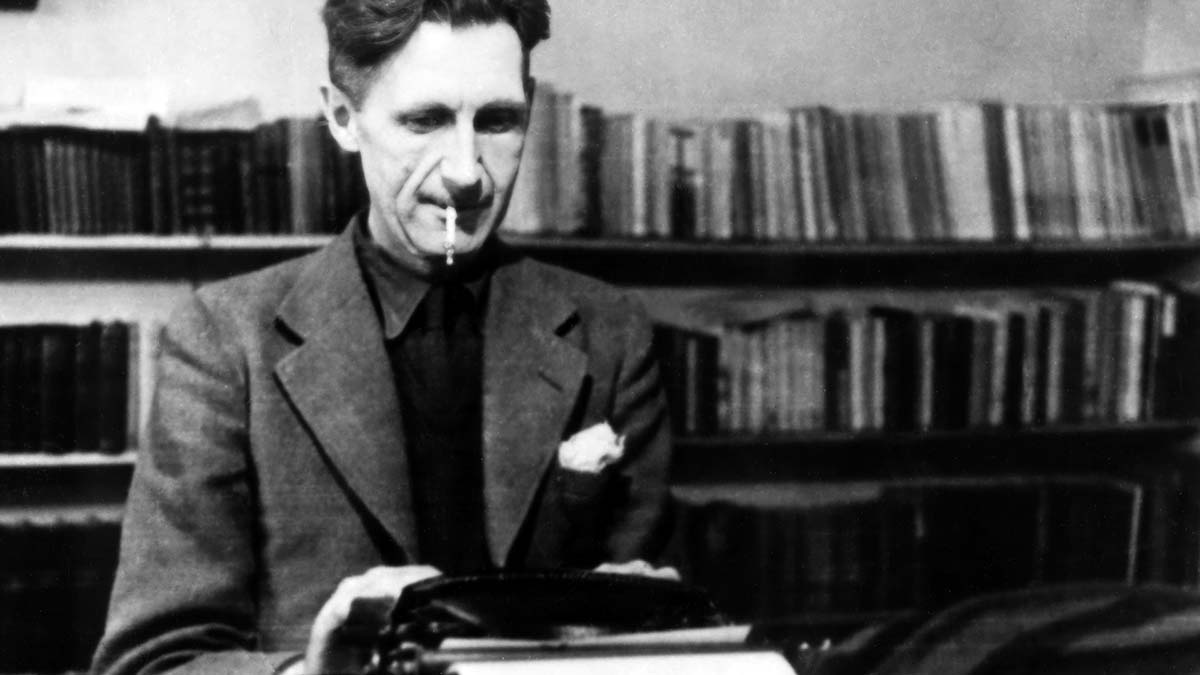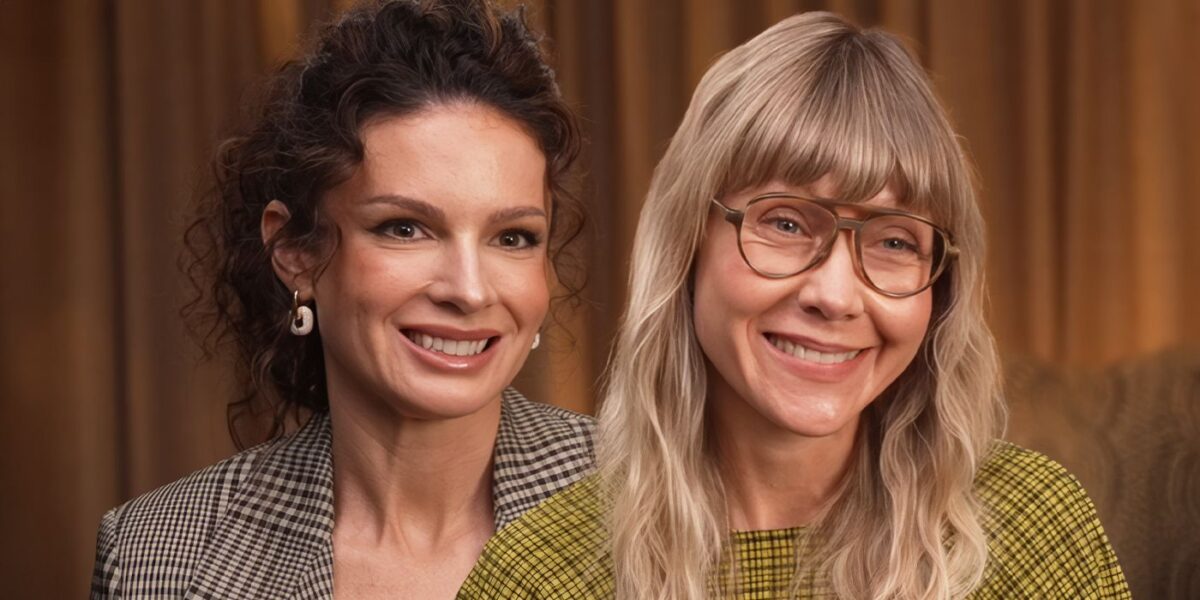
‘Good American Family’ Showrunners Break Down the Show’s Easter Eggs and That Shocking Finale
Apr 30, 2025
This interview contains spoilers for the Good American Family finale.
Summary
Good American Family showrunners Katie Robbins and Sarah Sutherland discuss the massive amounts of research that went into bringing Natalia Grace’s story to life.
The duo breaks down that shocking finale and reveals whether there are plans for a Season 2.
The two share their favorite needle drops and Easter eggs in the show.
Good American Family is a challenging show based on an equally challenging true crime case. The series depicts an Indiana couple by the names of Kristine (Ellen Pompeo) and Michael Barnett (Mark Duplass) adopting a Ukrainian orphan with dwarfism named Natalia (Imogen Faith Reid). Though she initially seems like a wonderful addition to their family, her behavior soon makes the Barnetts suspicious she may not be telling the full truth about who she is, leading to chaos, confusion, and trauma.
It’s a challenging thing to depict, but showrunners Katie Robbins and Sarah Sutherland approach the often tragic circumstances with care, showcasing multiple perspectives about what actually happened without sugarcoating the child abuse and cruelty that occurred. Their skill in this particular department should come as no surprise, as Robbins and Sutherland are no strangers to bringing complex family dynamics to the screen, having worked on shows like The Affair and Sunny.
Collider got a chance to speak with Robbins and Sutherland about casting Imogen Faith Reid, the series’ most memorable needle drops, the shocking ending (and whether there are any plans to continue the story in a Season 2), and much more.
‘Good American Family’s Showrunners Reveal the Research That Went Into Bringing Natalia Grace’s Story to the Screen
Image via Hulu
COLLIDER: I’m actually from Lafayette, Indiana.
KATIE ROBBINS: [Gasps] No way!
SARAH SUTHERLAND: What?!
So I knew a little bit about this before everyone else did, but I really came into knowing the story the way many other people did: through the HBO documentary. I’m curious how you both stumbled upon it.
ROBBINS: First of all, that’s wild, and I really want to talk to you about Lafayette. Hulu first came to me with this idea back in 2020 — so a million years ago — and at the time, it was being written about, but it wasn’t as pervasive. It was before the HBO documentary. It was before it had gotten quite as much attention as it has now. But there was still a lot, so I dug pretty deep into the research that was available at the time, which was a lot of interviews, a lot of articles, and I found that — as I was going through that — I was really struck by the fact that like your understanding of the story really shifted depending on who was being interviewed in the article. And I think that’s true in any kind of story, but it felt particularly true with this. So in figuring out how to structure it, I really wanted to hold on to that experience that, if you hear one version of the story, you’re convinced that that’s the version of the story, but if you hear it from somebody else, it feels different. I wanted to really highlight that and remind us that, when reading any story, you have to pay attention to who’s telling it.
Absolutely. That’s a great point. What about you? Was it the same sort of situation for you?
SUTHERLAND: Katie had created the show, and we’ve worked together for almost a decade now, and she brought me on. Part of it was I was just so excited about her vision to do the structure the way that it is — to lean into the perspective and the theme that she’s trying to tackle. The way that she had planned to do it was just really extraordinary, so I learned about it around the same time.
You mentioned you did a lot of research, and I think that really shines through and shows, but I’m curious if it was mostly looking at secondary sources with news stories and newspapers, or did you actually get the chance to speak to anyone who was involved with this case at all?
ROBBINS: We didn’t speak to anybody, but we had an extraordinary research team led by a woman called Reeva Mandelbaum, who was there for the trials and who got us access to not just secondary sources, but a lot of primary sources as well. We had access to Facebook messages and text messages and doctor’s reports and adoption reports and depositions — I cannot describe the trove of documentation that we had as a way of figuring out how to craft the story.
That’s very handy, I would think.
ROBBINS: Essential, yeah.
I imagine that casting Natalia is a really tricky thing because you kind of have to have someone who can reasonably play the adult version and the child version. I’m curious how you ended up with Imogen, who’s amazing. Were there also conversations about casting an actual child in this?
ROBBINS: We talked about it, but it was pretty clear immediately that you couldn’t do that because you do need this actor to play the adult version from Kristine and Michael’s perspective, but also, over the course of the season, we span many years, and so you needed somebody who could play all of those ages. And also, frankly, the experience that this actor would have to play is really emotionally demanding, so for all of those reasons, we knew that we needed to cast somebody of age. We did an international casting search for Imogen, and, in fact, the series order was contingent on finding somebody to play this role. When we saw Imy’s self-tape — she’s an actress who had done some theater and a lot of stand-in work and a lot of body double work — we were like, “This person is the only person who can do this.” She was extraordinary. She blew us away even from those first self-tapes.
Yeah, she’s incredible. I can’t wait to hopefully see her in a lot more after this.
‘Good American Family’s Showrunners Break Down That Ending and Whether There Are Plans for a Season 2
Image via Hulu
I wanted to ask about pacing because there’s so much ground to cover, like you said, with this show, so I’m curious how you chose to pace it the way that you did, and was there anything that had to get sped up or cut as you were plotting this?
SUTHERLAND: I love questions from writers. That was such a big challenge because the problem with this story — one of the challenges — is that there’s just so much story, and so a lot of the questions were surrounding how to pass the time. And Katie and I like to write with perspective — the way that we like to write really tends to have scenes that are back to back to back because you’re following one person and you want to really live with them — and so to both have that experience but also pass time was a big part of the conversation. I feel really good about where we landed, but yeah, that was a big part of the job.
ROBBINS: It was really hard.
SUTHERLAND: Thank you for seeing us. [Laughs]
I know that the series was shot before, obviously, the abuse allegations came out against the Mans family, but I did notice that we don’t see either Cynthia or Antwon in those ending scenes. I’m curious if the allegations changed the editing of that ending at all or if it was always meant to be what we saw in that finale.
ROBBINS: The series was done before that came out, as you said, and I think that we had a sense of some of the complications between Natalia and the Mans family at a certain point. We wanted to end the series where we do in a general sense, but we made some adjustments along the way in terms of that story.
I’m glad that you guys didn’t shy away from it, honestly, because I feel like it’s hard to balance that story with the things that you find out afterward. You tackled it in a really respectful way that really worked. There is obviously a lot more story to tell that we’ve since found out. I’m curious if you would ever consider doing a Season 2 or if this is strictly a limited series in your mind.
ROBBINS: That’s not something that we’re talking about. I think that this show very intentionally ends where it does because it speaks to the themes that we’re trying to explore in the show.
I wanted to talk about one moment in the ending because we have Jacob sort of apologizing, and he’s really the only one who does take responsibility, even though he was a child and all this was happening to him, too, which I found really heartbreaking but also impactful. I’m curious if you can talk about writing that moment because it felt really moving and powerful to me.
ROBBINS: Oh, that’s really nice to hear. You know, I think that one of the things that the show is kind of grappling with is family trauma and the way that trauma from one generation carries through to the next and the next, and is it possible to stop that? Are there ways to kind of have one generation say, “Okay, I’m not going to do this anymore — I need to find a new path”? The show has a lot of darkness in it, but we were constantly looking for places to find a little bit of hope, and with generations looking to find more empathy for other people and to move through the world with empathy and curiosity, that is the thing that I think gives us the most hope for the future of the world. And so finding that little moment between the two of them felt like a way of kind of conveying that.
‘Good American Family’s Showrunners Discuss Needledrops, Easter Eggs, and All Those Donuts
Image via Hulu
On a bit of a lighter note, the soundtrack…
ROBBINS AND SUTHERLAND: [Pump fists] Yay!
It really stood out to me.
SUTHERLAND: That’s the first time we’re talking about music! We should be talking about music every time.
I agree.
SUTHERLAND: Thank you.
It felt so intentional and memorable, so I’m curious if you can talk about choosing the songs that you did and if there were any favorite needle drops.
ROBBINS: As you can see, we really like this question a lot.
SUTHERLAND: Winning question.
ROBBINS: Sarah and I both write to music, so it’s always a really important part of the process, even from the point where — in the first outline that I wrote of the pilot — I was adding in needle drops. One of the things that felt really important about the needle drops that we use is that I wanted them to be really emotionally accessible, familiar kinds of things that these characters might listen to to feel like themselves. It was these big, emotional ballads or pop songs, and the music sort of shifts depending on whose perspective we’re in. But I just wanted it to feel really American and really familiar — but not too familiar that it would feel overly so. We had a tremendous amount of fun picking them. “Shiloh,” which becomes a bit of an anthem — Neil Diamond’s “Shiloh” — is probably the one that sticks out a lot. And then there’s a little Robin that we get later on in the season that I think is another one that really felt really right.
SUTHERLAND: Meatloaf.
ROBBINS: Oh my gosh.
SUTHERLAND: I mean, Mark and Meatloaf is a match made in heaven.
ROBBINS: Yeah, it was really fun.
Like you said, it really grounds you in America, but I feel like it grounds you in time, too, which is really nice. It really feels like the years this takes place.
SUTHERLAND: We were very strict about the timing.
I really love that attention to detail. Speaking of levity, this is a very random question, but I feel like donuts came up a lot in the show, and I’m just curious if there’s a story behind that.
SUTHERLAND: [Laughs] I really enjoy these questions. Katie, what is your problem with donuts? Can you explain?
ROBBINS: [Laughs] That’s so funny. My husband — I’ll have him read scripts — and he’d be like, “I think you’re kind of overdoing it with the donuts.” And I was like, “It’s a life meme. It’s a life meme.” No, I mean, donuts are funny. They’re good.
SUTHERLAND: They’re on set, and you get to eat them.
ROBBINS: I love having, in writing — and I think this is something that Sarah shares — having specific moments.
SUTHERLAND: The cruller of it all. [Laughs]
ROBBINS: I’m a nerd about props. I’m obsessed with props, and I want them to be as specific as possible. I think there are these things that recur in a person’s life or recur in a story, so finding those little moments is something that I’m always looking to do, and donuts are one of them.
Well, now I’m curious, are there any other favorite props that you snuck in there?
SUTHERLAND: Oh, boy. I make fun of Katie for how obsessed she is with props. It is an important thing to obsess over, but…
ROBBINS: I think that props are the things that we touch and interact with everywhere we go and make our lives feel real, so I’m very obsessive about props feeling as grounded and specific in time and place as they can be, in Natalia’s apartment or in the house. In Kristine’s daycare, wanting to make sure that the stuff that is in there is very specific to what a daycare set up for neurodivergent kids would have, wanting to make sure that the posters in Jacob’s room feel grounded and what a science prodigy would be engaging with. I am props obsessive, but we had an extraordinary team of designers — our props master and our production designer and our costume designer — who, that is their job: to be that specific. I love them because I can nerd out with them about making sure that everything feels as real and grounded as possible.
I was nerding out about the details that you planted. I knew the story, but there were these lines that were very foreshadowing — “He’s only 12. He can’t live by himself.” That really stuck out to me.
SUTHERLAND: I feel very seen by you.
Thank you! I’m curious if you can talk a little bit about the balance of wanting to foreshadow some of this stuff but also keep that surprise for someone who might not know the story and this is their first introduction.
SUTHERLAND: I think that was obviously another challenge in the process. A thing that we talked about a lot that informed it was back to this theme of bias when, from your own perspective, the choices you make and the things you say and do make sense. They seem benign. They’re totally understandable. A lot of the worst crimes in history have been committed by people who think they’re doing what’s right, and so the idea of wanting to — for each section — really live with those people, while not letting the audience think that we’re off our rocker and don’t know more about the whole story, was a constant conversation that we were having. I’m glad that it seems like it’s landed for you.
I could talk about this all day with you guys. I do have to wrap, but thank you guys so much. This is a really fun one, but it’s an important one as well.
ROBBINS: Thank you so much. Oh my god, thank you for asking about donuts and music.
SUTHERLAND: I love that Lafayette likes it! That’s great! That’s huge. We love Lafayette. We have such deference for the city and spent a lot of time trying to recreate it in California.
I was like, “Christina Hendricks is here? This is cool.”
ROBBINS: I know, right?
Good American Family is available to stream on Hulu.
Watch on Hulu
Publisher: Source link
Erotic Horror Is Long On Innuendo, Short On Climax As It Fails To Deliver On A Promising Premise
Picture this: you splurge on a stunning estate on AirBnB for a romantic weekend with your long-time partner, only for another couple to show up having done the same, on a different app. With the hosts not responding to messages…
Oct 8, 2025
Desire, Duty, and Deception Collide
Carmen Emmi’s Plainclothes is an evocative, bruising romantic thriller that takes place in the shadowy underbelly of 1990s New York, where personal identity collides with institutional control. More than just a story about police work, the film is a taut…
Oct 8, 2025
Real-Life Couple Justin Long and Kate Bosworth Have Tons of Fun in a Creature Feature That Plays It Too Safe
In 2022, Justin Long and Kate Bosworth teamed up for the horror comedy House of Darkness. A year later, the actors got married and are now parents, so it's fun to see them working together again for another outing in…
Oct 6, 2025
Raoul Peck’s Everything Bagel Documentary Puts Too Much In the Author’s Mouth [TIFF]
Everyone has their own George Orwell and tends to think everyone else gets him wrong. As such, making a sprawling quasi-biographical documentary like “Orwell: 2+2=5” is a brave effort bound to exasperate people across the political spectrum. Even so, Raoul…
Oct 6, 2025
